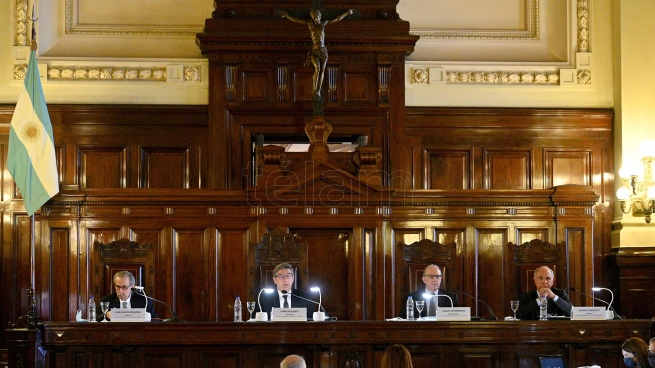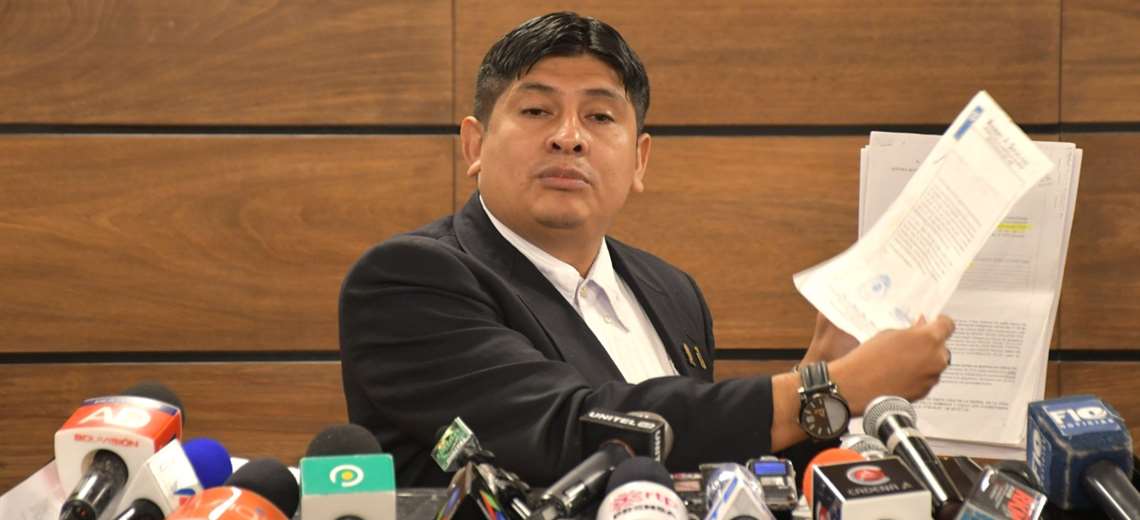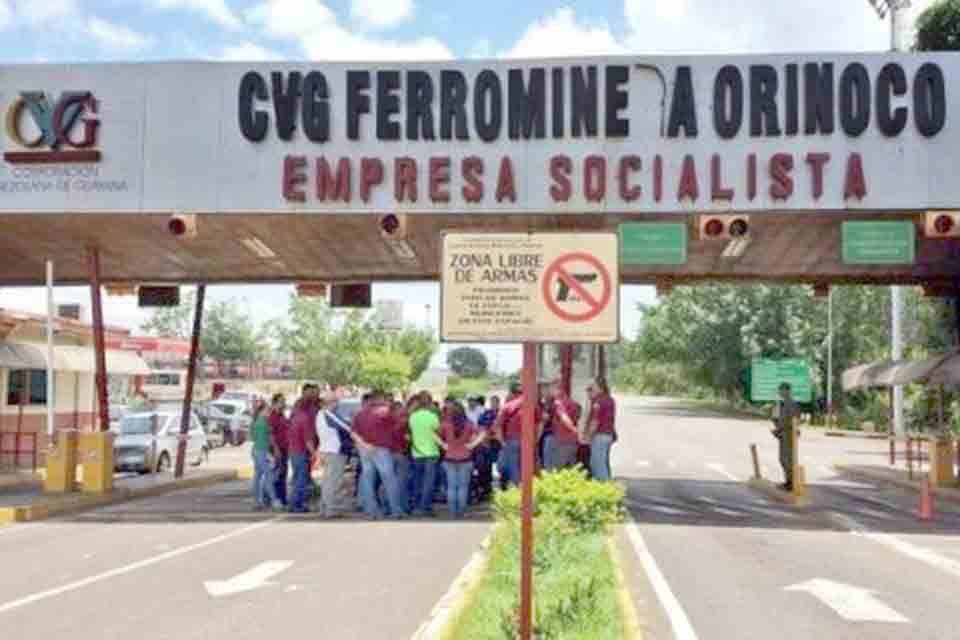The bill presented by the Frente de Todos to modify the number of members of the Supreme Court of Justice, which raises from five to 25 members of the court to grant a more federal characterobtained a majority opinion during a meeting of commissions in which a group of governors from the ruling party defended the initiative before the legislators.
The initiative got the support of the interbloc headed by the Peronists José Mayans and Anabel Fernández Sagastiby gathering the necessary signatures of the members of the Constitutional Affairs and Justice and Criminal Affairs commissions.
The decision to sign the project was announced by the president of Constitutional Affairs, Guillermo Snopek from Jujuy, and later confirmed by the head of Justice, Oscar Parrilli.
Formoseño Mayans, meanwhile, confirmed to Télam that the project will be brought to the site on Thursday, July 14.
“It is an issue that has already been debated for four weeks. Why are we going to keep going around?”, Sentenced the head of the interblock of the Front of All.
The Peronist from Salta Sergio Leavy also ratified the signing of the ruling, and risked that the issue would only be brought to the precinct in August.
The initiative was signed in the absence of the members of Together for Change (JxC) who oppose the project. The vice president of the Constitutional Affairs Committee, José María Torello from Buenos Aires, was only at the meeting for a few minutes.
The proposal
The project, which consists of only four articles, establishes that there will be 25 members of the Supreme Court.
The proposal also provides that the Senate must agree to another 21 members proposed by the Executive Power, as established by the National Constitutionrespecting the appointment of the current four members: Horacio Rosatti, Juan Carlos Maqueda, Ricardo Lorenzetti and Carlos Rosenkrantz.
The first article of the text, however, announces that a future “special law” will define “the mode of organization and operation” of the Supreme Court.
The idea is that that “special law”, whose project has not yet been presented, establishes certain guidelines such as the division into rooms, integration by regions and other objectives.
The project, however, will receive some changes: in principle, ensure gender parity, which will ensure the support of Senator Clara Vega from La Rioja, one of the allies of the ruling party whose vote was in doubt.
In this sense, a mechanism will be sought by which each province sends a four-member group of candidates to the Executive Power (two men and two women) so that the President of the Nation, using his constitutional powers, sends the candidates to the Senate.
The governors push
The project received an opinion after seven governors of the ruling party were present in the Illia Hall of the Senate to express their support for the measure that theyalong with nine other leaders, had been introduced to President Alberto Fernández in early May.
Governors Axel Kicillof (Buenos Aires), Raúl Jalil (Catamarca), Gildo Insfrán (Formosa), Gustavo Melella (Tierra del Fuego), Jorge Capitanich (Chaco), Gerardo Zamora (Santiago del Estero) and Alberto Rodríguez Saá (San Luis).
“We are not against anyone, we are in favor of a Justice with a federal sense and a justice that solves basic problems”Jorge Captainich
“The composition of the Supreme Court of Justice has been centralist, misogynistic and with an anti-federal bias,” he said. Captainich when using the word.
The Chaco governor assured the senators that there is “an advance of centralism that advances hand in hand with the interference of corporations that promote a mechanism of pressure and manipulate and manage justice at will.”
“We are not against anyone, we are in favor of a Justice with a federal sense and a Justice that resolves basic problems,” he clarified.
Rodriguez Saafor his part, demanded to address the discussion on the reform of the Supreme Court “from outside the crack” and pointed out that “the crack is tremendous and does a lot of damage to Argentina.”
“Our project is for a climate of national unity, we don’t all think the same,” he said.
Zamora declared that the call of the provincial leaders for the reform of the Supreme Court originated in “a crisis of federalism and Justice” that exists in Argentina.
“The crisis of federalism and Justice summon us,” said Zamora.
The Santiago governor marked the number of cases on which the highest court must rule annually and considered that “it is impossible for a Court of four members to resolve all these cases.”
While, the governor of Tierra del Fuego He assured that the bill to reform the Supreme Court “is not against anyone”, but seeks “a better quality of Justice”.
“There is a crisis of federalism and in the Justice”Gerardo Zamora
“The Court has to have federal representation and it has to be a modern Court,” said the president, who also spoke in favor of “an expansion of members with a view to specializing in different issues.”










